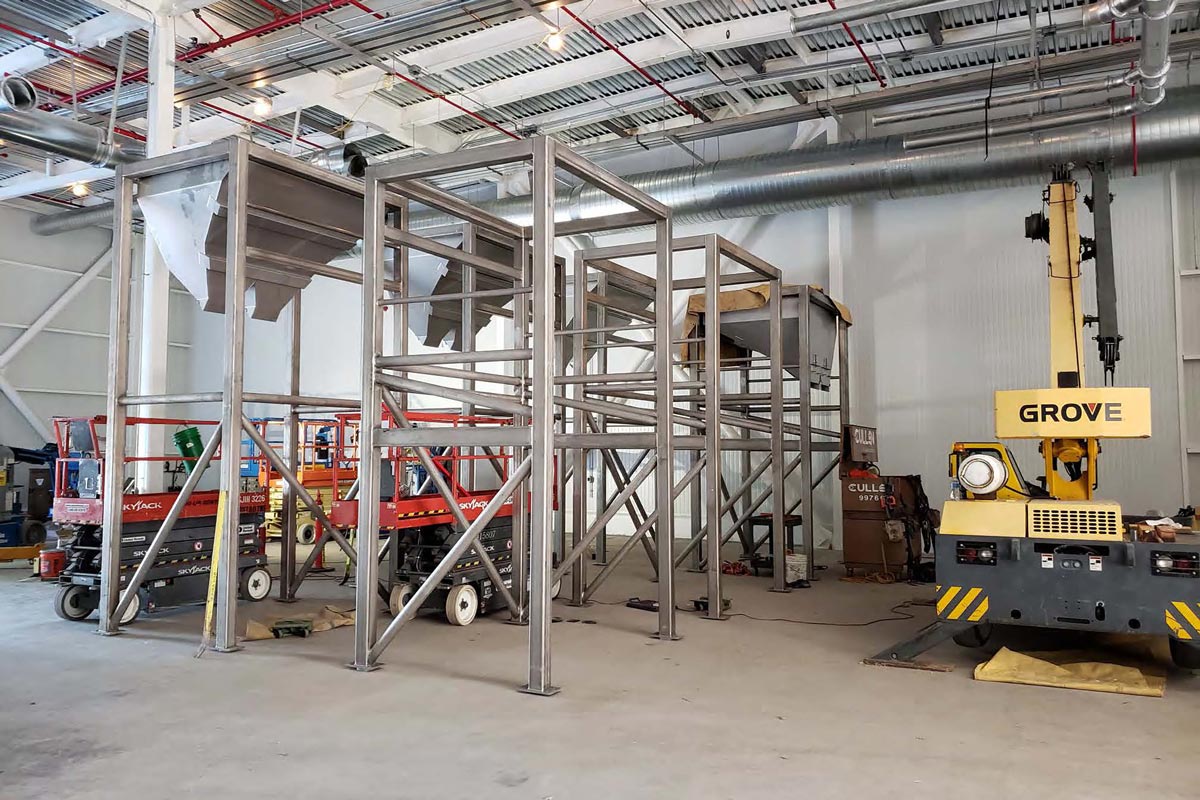
- Industrial
Global Almond Company Process & Packaging Line Addition
- Global Almond Company

Square Footage:
Location:
Located in Northern California, we set out to take on a 30,000 square foot process & packaging line for an almond processing company. The project included installing the interior buildout of a new process and packaging line for manufacturing a base product to produce almond milk. This work included equipment installation, platforms, process piping, and process duct work. We also added more automation to their current packaging department and upgraded their wastewater treatment center.
Our first challenge came with the start date of our project. We started 3 months behind schedule, and still had the objective to complete the project by the original completion date. The delayed start was due to delays of previous construction work happening on the site, leading to the building construction trades to conflict with the equipment installation. Our team did not have direct control of their schedule, trade coordination, and/or safety. It required intense coordination, without direct authority to ensure all trades could be productive and safe in that work environment.
Not only did we face the challenge of a delayed start, but the project was located in California and could not be fully manned by our Wisconsin crew. This required coordination with the location ironworkers and millwright labor unions to ensure that we had adequate manpower, both from a quantity and quality perspective, to perform the work.
Despite the difficulties of achieving the original completion date, our team developed solutions to reach this result. To do so, we were successful in the pre-planning stage. We started our own coordination meetings, performed daily safety walks, brought our safety practices from back home with us, and grew a relationship with local ironworkers and millwright workers that extended to local tradespeople who were able to come onboard.
Pre-Planning. We focused on the critical path items and manpower required. This was especially critical due to the project location since it would be nearly impossible to add manpower at any time it was needed.
Coordination Meetings. We started coordination meetings with our subcontractors, the construction manager performing the building construction, as well as the construction manager’s subcontractors. This allowed us to indirectly take control and help accelerate the schedule and discuss clashes prior the project being held up.
Safety. Our daily safety walks gave us the opportunity to discuss how things could be done differently with non-contracted subcontractors. In addition, we brought our safety practices from back home and led by example in the out of state environment.
Grew our relationships. We were able to make further connections with local tradespeople after word got out on our previous project in California where we impressed the workers with the way we ran a project.
We were able to complete the project by the original finish date despite the 3-month delay. In addition to our solutions, we used 3D model coordination and review which let us get out ahead of clashes prior to running into them as the work was going into place, becoming a major schedule saver for our team.
We brought our Wisconsin crew and lead the site by example in quality, safety, and communication. The owner stated numerous times that they were glad JP Cullen is doing the work.











